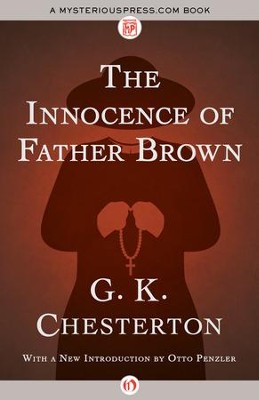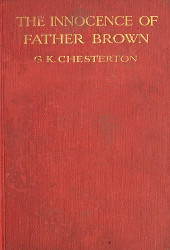


Chesterton writes well, but I found these were mostly unsatisfying as mysteries, relying too much on obscure leaps of deduction. If Chesterton subtracted Doyle's scientific and logical approach from detective fiction, I'm not convinced he replaced it with anything of particular interest. Holmes investigates the external, of course, but reveals the internal by doing so, and though I would agree he works in a "dry impartial light," I would never call his approach "dead and dehumanised."

To me, this feels like a rebuttal of the practices of actual scientific criminologists, like Cesare Lombroso and Francis Galton, and even though it evokes Holmes's comparison of himself to the paleontologist Cuvier,* I don't think it really matches up with how Holmes actually works. They mean getting a long way off him, as if he were a distant prehistoric monster staring at the shape of his 'criminal skull' as if it were a sort of eerie growth like the horn of a rhinoceros's nose" (9). Martin Gardner's introduction emphasizes that this is Father Brown's modus operandi, quoting a speech by Father Brown from the later The Secret of Father Brown (1927): "what do those men mean, nine times out of ten, when they say detection is a science? When they say criminology is a science? They mean getting outside a man and studying him as if he were a gigantic insect in what they would call a dry impartial light in what I should call a dead and dehumanised light. exams way back when, one of my committee members suggested I read some Father Brown stories: if I was reading Sherlock Holmes to see how a detective applied seeing like a scientist to solving crimes, then maybe it would be helpful to contrast a non-scientific way of solving crimes.


 0 kommentar(er)
0 kommentar(er)
